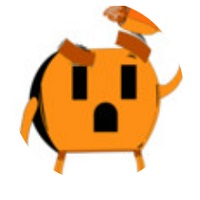Respect Your Smoke Detector
Why do we need Smoke Detectors?

Recommended Products

Today most households are equipped with smoke detectors, but what most people don’t know is that 60% of U.S. homeowners have smoke detectors without fully functioning batteries. Two-thirds of all home fire deaths happen in homes with either no smoke alarm or no working alarm. Why don’t the alarms work? Well, it’s mainly due to missing or disconnected batteries. No power, no alarm. There might as well not be a smoke detector.
Smoke detectors have become such common house hold appliances that it is easy to forget that they’re there for the protection of the occupants and that they require maintenance like any other device, but they are and they do. When smoke detectors are present and functioning, the risk of dying in a house fire is cut in half, but when they are not the risk of a fire related accident is much greater.
Every year during fire protection week, the National Fire Protection Association (NFPA) delivers fire safety messages to help educate people on the importance of fire safety. This year the theme was: Smoke Alarms Save Live: Test Yours Every Month. With this theme, the NFPA informed the community on the importance of their smoke detectors.
Facts About Smoke Detectors
The risk of dying in reported home fires is cut in half when working smoking detectors present in the home. Today, 92% percent of U.S. homes have at least one smoking detector but the smoke detector is functioning in only three-quarters of these homes.
It is recommended that smoke detectors be hard wired so that they can still operate even in power outages. Hard wired smoke detectors operate 92% of the time while battery operated smoke detectors only operate 77% of the time. In half of the home fires in which smoke detectors were present but did not operate, batteries were dead, missing, or disconnected due to reasons such as nuisance alarms.

Often times, smoke alarms are disabled because of nuisance or false alarms. A nuisance alarm from a smoke detector is when it goes off without there actually being a fire. Cooking is the leading cause of smoke detector nuisance alarms.
However over the past few years, there have been some steps taken to reduce nuisance alarms. There are now hush features and refinements have been made to installation rules that include guidance on safe distances from nuisance sources.
How to care for your Smoke Detectors
The Nation Fire Protection Association (NFPA) has provided a list of important smoke detector safety tips to ensure that your smoke detector is providing you with full protection:
Install smoke alarms on every level of your home, inside each bedroom and outside all sleeping areas.
Test smoke alarms monthly.
Create a home fire escape plan that includes two ways out of each room and a meeting place outside in front of the home.
Practice your plan with all members of your household.
Learn the emergency number for your fire department.
If the smoke alarm sounds, get outside and stay outside. Call the fire department from outside the home using a cell or neighbor’s phone.
Smoke detectors can also be interconnected now, meaning that if one smoke alarm goes off the rest of the smoke detectors in the house will go off for your protection. Smoke detectors save lives but they need to be maintained to work properly. Take the time to check your smoke detectors regularly and have a plan in case of a fire.
Proper Installation is Key
The National Fire Protection Association (NFPA) recommends that a smoke detector be installed in:
Every bedroom
Outside each sleeping area
On every level of your home

Many smoke detectors, including the IoPhic detector, can be interconnected with other units. Having interconnected smoke detectors on all floors and in more than one room will deliver maximum security; when one alarm goes off in the interconnected system, all of the smoke alarms will sound. When the interconnected system of devices goes off, there is a higher likelihood that all floors and rooms will have optimum time to evacuate and prevent damage.
Interconnecting Smoke & Carbon Monoxide Alarms
- Smoke alarms can also be interconnected with other types of alarms, including carbon monoxide alarms.
- Carbon monoxide alarms detect dangerous levels of CO in the air. Carbon monoxide (CO) is colorless, odorless, tasteless, and toxic. It can be fatal if exposure is prolonged.
CO exposure symptoms include:
- flu-like symptoms
- confusion
- fast heart rate
- unconsciousness
- convulsions
- In some case, death
Interconnecting fire and CO alarms provide protection from both potentially dangerous situations; if any CO or methane is present, all alarms will sound and vice versa. The interconnected systems will provide the quickest and most effective protection against fire, CO, and methane.

Backup Battery: Provides Protection Even in Power Outage
The most effective alarms are those that are powered through direct wiring or plugging in, but it is also recommended that you have a backup battery for protection during power outages. The backup battery ensures that even if the electricity goes out, the device will still sound in the event of a fire.

Frequently Asked Questions
Can a smoke detector detect cigarette smoke?
Cigarettes do produce smoke and carbon monoxide, but they do so at such a low level that is is unlikely that it will set off a smoke detector.
Will steam trigger a smoke detector?
Sometimes, steam can behave like smoke and trigger a smoke detector. This can happen if the smoke alarm is too close to the kitchen, so this should be considered when the smoke alarm is being installed.

Recommended Products
Receive special deals and more, right to your inbox
Receive special deals and more, right to your inbox





